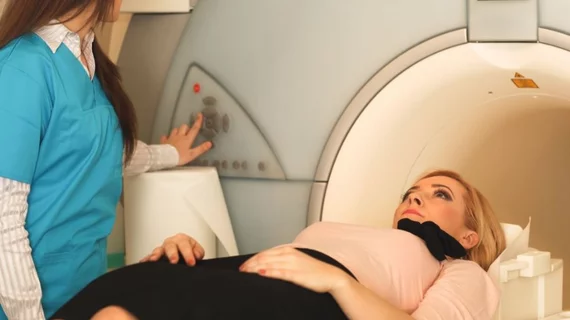Newly created prediction models reduce false-positive rates among women with dense breasts, making screening MRI a feasible solution for this high-risk population, according to research published in Radiology.
High breast density not only increases a woman’s risk of cancer but also greatly reduces mammography’s sensitivity. And while breast MRI’s superior sensitivity makes it a useful tool, that same capability also detects benign lesions that can lead to repeat scans, added costs and unnecessary anxieties.
By combining MRI findings with clinical features such as body mass index and history of breast cancer, the team found their top model could have prevented 45% of false-positive recalls. It also would have avoided 21% of benign biopsies without overlooking important findings, the team explained Tuesday.
"Our prediction models may identify a substantial number of false-positives after first-round supplemental MRI screenings, reducing false-positive recalls and benign biopsies without missing any cancers," lead author Bianca M. den Dekker, MD, from the University Medical Center Utrecht in Utrecht, the Netherlands, said in a statement. "This brings supplemental screening MRI for women with dense breasts one step closer to implementation."
To create their models, Dekker et al. utilized data from a Dutch trial that assessed the effectiveness of using mammography plus MRI versus mammography alone. While the full model (MRI findings plus clinical info) would have avoided 45% of false-positive recalls, their MRI plus age tool was comparable. It would have avoided 35.5% of false-positive screening and 13% of unneeded biopsies.
“The reduction of the false-positive recall rate is an important issue when considering the use of breast MRI as a screening tool," Dekker added.
Going forward, the team plans to validate its work on data from multiple populations. They will also investigate how the models work in subsequent screening rounds.
See the full study here.

